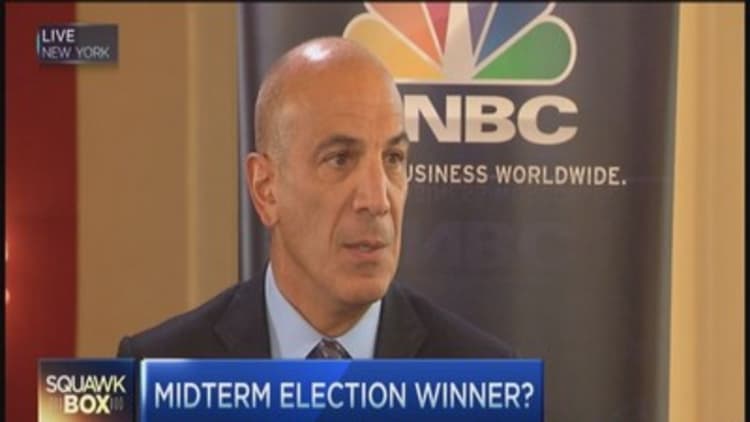
They might want to think about changing the name of Obamacare's "Cadillac Tax" to a "Ferrari Tax."
A new report that details the effects of a looming Obamacare excise tax on employer-sponsored health plans highlights the big bucks large companies will have to dole out starting in 2018 and how employees might end up getting stuck with much of the costs if bosses blanch at the tax bill.
The American Health Policy Institute analysis found that big companies subject to the tax will pay an average of $2.1 million per year from 2018 to 2024—equal to $2,700 per employee. And if companies adjust workers' wages to offset reductions in health benefits due to the tax, more than 12 million employees will face an average of $1,050 in higher payroll and income taxes per year.
"As these numbers show, this tax is going to impose real costs on both employees and employers alike," the group's report said.
The AHPI analysis also suggests that as companies move to avoid getting hit with the so-called Cadillac Tax, the federal government might end up collecting tens of billions of dollars less than its budget projections are counting on.
Read MoreObamacare sign-ups seen 30% lower than forecast
"Employers are saying, 'We're not paying this tax,' " said AHPI President Tevi Troy, referring to the strategies that companies say they will adopt to stay below the Cadillac Tax's threshold.
"They are saying we don't think it's smart policy to pay this tax when there are things we can do to limit our exposure to these taxes," Troy said. "But the things they can do to limit their exposure to the tax will have an affect on employees who find their health plans less affordable."
Who takes the hit?
In particular, he said, more companies will move toward plans that have higher "cost-sharing" by workers, that is plans with higher deductibles and other out-of-pocket expenses.
"A tax that is designed to hit employers will have the effect of harming employees," Troy said.
The Affordable Care Act included the Cadillac Tax as a means to control the spiraling cost of health care, by putting pressure on employers to offer less-generous health insurance plans than they have been. The theory is that if people see more of the direct costs of their health care, they will be more conservative in using their insurance.
The tax will start in 2018 and impose a 40 percent levy on the cost of individual health plans above $10,200 for individuals and $27,500 for family coverage, with both employer and worker contributions included. Every dollar above those thresholds is taxed at that 40 percent rate, the tax is not deductible by the employer and the thresholds are indexed to inflation.
Read MoreObamacare challenge set for Supreme Court showdown
AHPI, a think tank set up to study the impact of health policy on large employers and whose board is comprised of top human resource executives from such companies, said that their research showed more than 38 percent of large companies with more than 1,000 workers will be hit by the tax in 2018 unless they make changes to the design of their health plans. Of all U.S. businesses, 17 percent are expected to be hit by the tax that year.
The Congressional Budget Office has estimated that the Cadillac Tax will send $120 billion into the federal government's coffers from 2018 to 2024. About 25 percent of that is projected to come directly from employers, health-plan administrators and plan issuers.
But the remaining 75 percent, or $90 billion, is expected to come from higher taxable wages on workers. The CBO's projection is based on the assumption that many employers will reduce health-care benefits to avoid the tax, and will boost wages to offset the effect on workers.
Read MoreObamacare: You can pay less, but shop around
But Troy said that many large companies with more than 1,000 workers that AHPI has talked to don't expect to boost wages to the extent that CBO expects they will.
"I think they're just going to continue paying wages according to the market rate," Troy said.
A sobering scenario
While AHPI's analysis projects that more than 12 millions workers at big companies would pay an average of more than $1,000 more in payroll and income taxes under the CBO's scenario, it also includes an alternative, sobering scenario.
"The employees could see up to a $6,150 reduction in their health-care benefits and little or no increase in their pay," the report said.
Troy said he thinks that these kinds of projected costs of the Cadillac Tax on businesses and workers may lead Congress to change it, particularly given the fact that Republicans will take control of the U.S. Senate this winter, and have solidified their control of the House of Representatives after the mid-term elections.
"You can eliminate the tax, you can change the thresholds, or you could exempt employees under a certain wage," Troy said, when asked what Congress might do.
However, tweaking or even eliminating the tax may prove difficult as long as President Barack Obama is in office and wields a veto pen.


